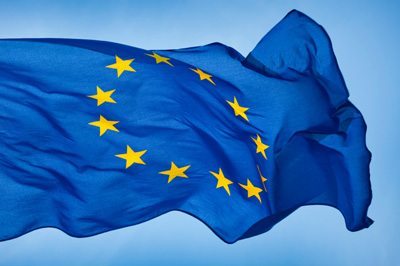-
Tips for becoming a good boxer - November 6, 2020
-
7 expert tips for making your hens night a memorable one - November 6, 2020
-
5 reasons to host your Christmas party on a cruise boat - November 6, 2020
-
What to do when you’re charged with a crime - November 6, 2020
-
Should you get one or multiple dogs? Here’s all you need to know - November 3, 2020
-
A Guide: How to Build Your Very Own Magic Mirror - February 14, 2019
-
Our Top Inspirational Baseball Stars - November 24, 2018
-
Five Tech Tools That Will Help You Turn Your Blog into a Business - November 24, 2018
-
How to Indulge on Vacation without Expanding Your Waist - November 9, 2018
-
5 Strategies for Businesses to Appeal to Today’s Increasingly Mobile-Crazed Customers - November 9, 2018
Israeli leader says EU should be ‘ashamed’ over labeling
After various attempts to postpone the vote, on Wednesday the European Commission finally approved a measure forcing companies to label products coming from the Palestinian territories that have been occupied since 1967.
Advertisement
Europe has incurred the wrath of Israel after it announced that all member states must clearly label goods that have been manufactured in Israeli settlements in the occupied territories.
The Israeli government sees it as a boycott of its products during a time when it needs all the diplomatic help it can get to make progress with the peace process.
Israel’s Prime Minister Benjamin Netanyahu, who’s in Washington on an official visit, called the decision “hypocritical and a double standard”. “The claim that this is a technical matter is cynical and baseless”, the statement said.
The European Union says Israel’s occupation means the situation in the Palestinian territories is considered not comparable to other territories like Cyprus or Western Sahara. Israeli leaders condemned the move as discriminatory and warned relations could suffer with one of its biggest trading partners.
Mandatory indication of origin applies notably to fresh fruit and vegetables, wine, honey, olive oil, eggs, poultry, organic products and cosmetics. The labels will include a specific reference that products come from a settlement but the wording would be left to the member states, sources said.
In a decision that has been hotly debated for three years or so, the European Commission – the EU’s executive arm – decided Wednesday that products from the territories taken by Israel in the 1967 Six-Day War can no longer be sold in the 28-country EU as having come from Israel.
The Psagot settlement in Israel. “We don’t need public diplomacy and we definitely shouldn’t yell at them that they are anti-Semitic”, the former foreign minister said on her Facebook page. “This might force us to reconsider that”. Also, for over a decade now, the European Union has excluded products from settlements from trade preferences.
Labeling such goods as “product from Golan Heights” or “product from West Bank” would not be specific enough and therefore would not be acceptable, the commission said. That is about 0.7 percent of the approximately $14 billion the European Union annually imports from within the Green Line. In 2014, it was exactly €13,070,556,887; or about NIS 57 billion. Nor will “product from Golan Heights” or “product from West Bank” be acceptable.
“Of the hundreds of territorial conflicts around the world it chose to single out Israel and Israel alone”, Netanyahu said, adding that labelling would not hurt Israel’s economy but would hit jobs for Palestinian workers employed in the settlements. “Yes, it could cause us a few losses, but we will overcome it”.
The comments were mild compared to those of right-wing Israeli politicians.
“The European Union does not support in any form boycott or sanctions against Israel”, he asserted. “We do not accept the fact that Europe is labelling the side being attacked by terrorist acts”. It is not based on political grounds. It says the labelling policy aims to distinguish between goods made inside the internationally accepted borders of Israel and those outside.
“There is certainly a very strong element of double standards applied to the Jewish State”, Moshe Kantor, president of the European Jewish Congress, said.
Once the labeling is implemented, European consumers will be able to read on the label of most products if a piece of merchandize or goods – mostly fruit and vegetables – was produced on Israeli settlements.
Advertisement
We believe and hope that in friendly countries like Germany, Poland, Czech Republic, and others, implementation will not be so strict, because they realize that it opens to door to a boycott and discrimination against Israel”, he stated, adding in summary, “We have a long battle ahead of us.





























